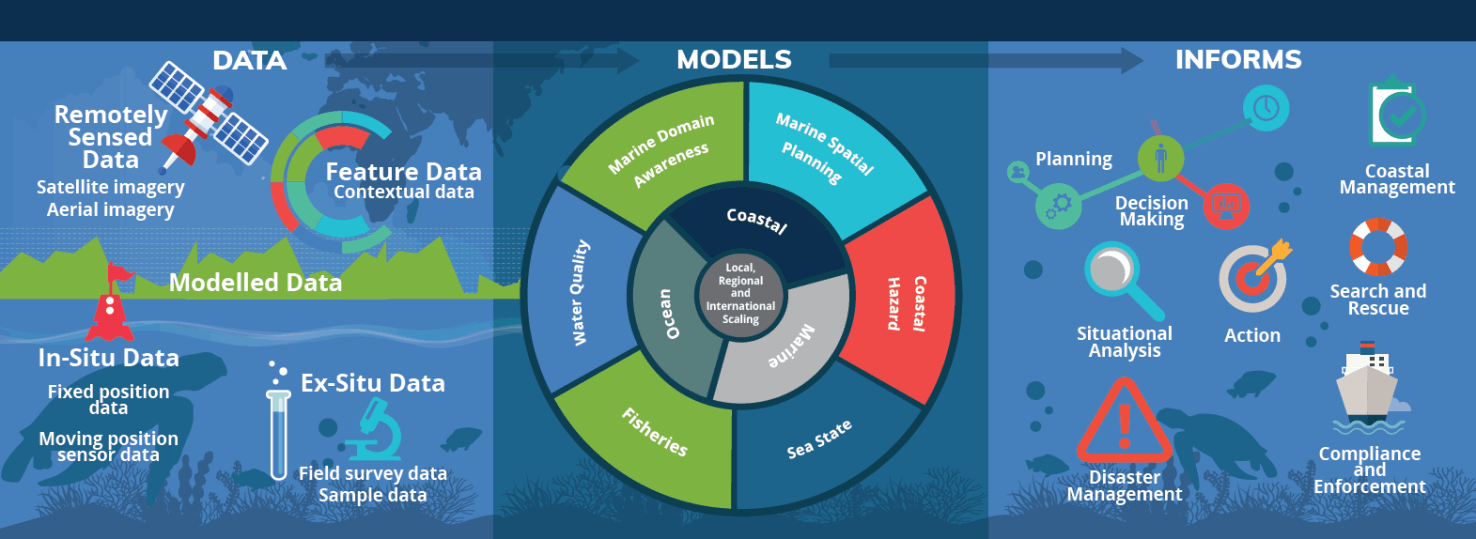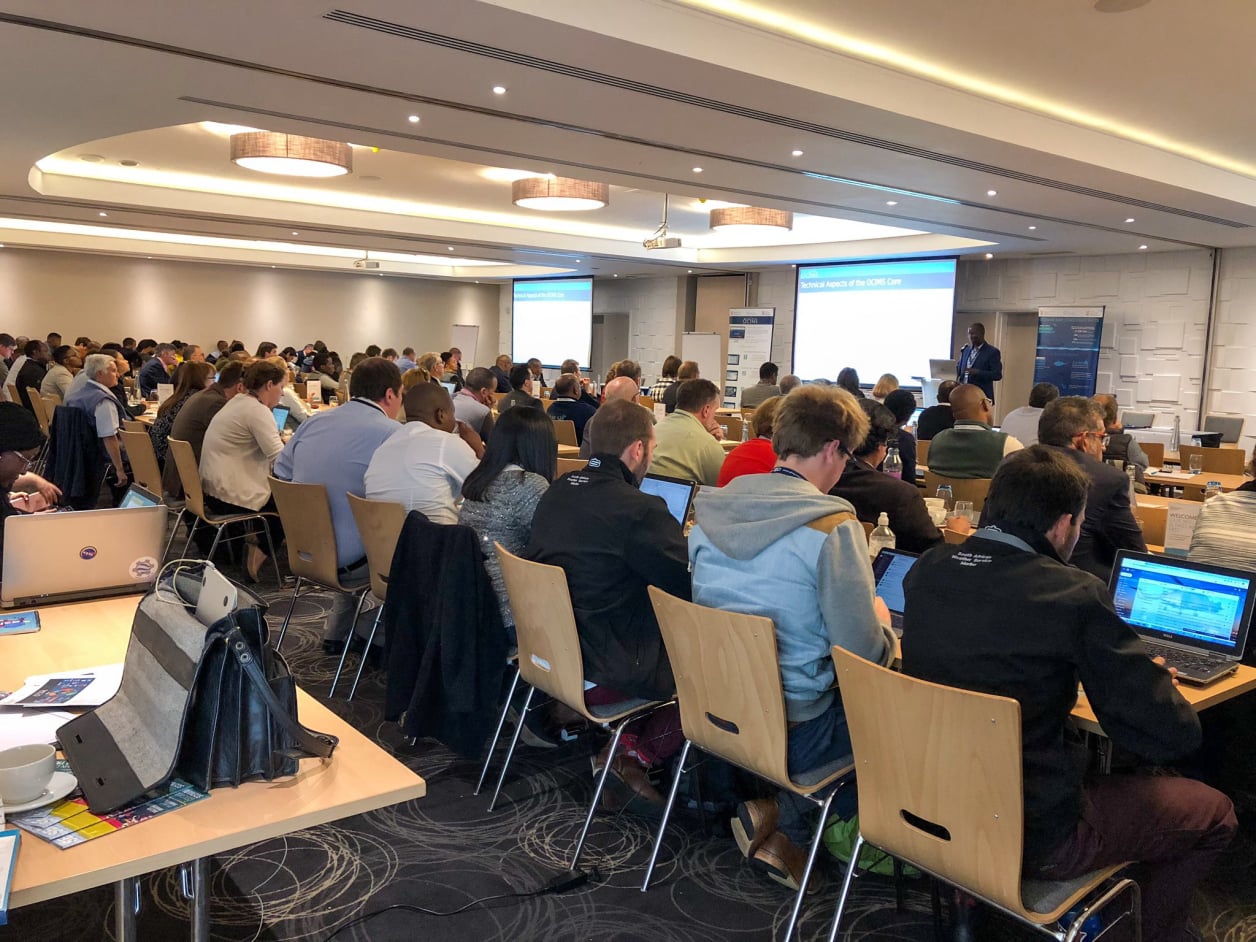
Conceptual model for effective decision support
Data is provided, either physically or via pipelines, by various data custodians and/or contributors to feed the respective models of the different decision support tools (DeSTs). These models are hosted on the Marine Information Management System (MIMS), which has a dedicated high performance computing component. The derived products are then fed to the user-facing DeSTs for further interrogation by stakeholders.


